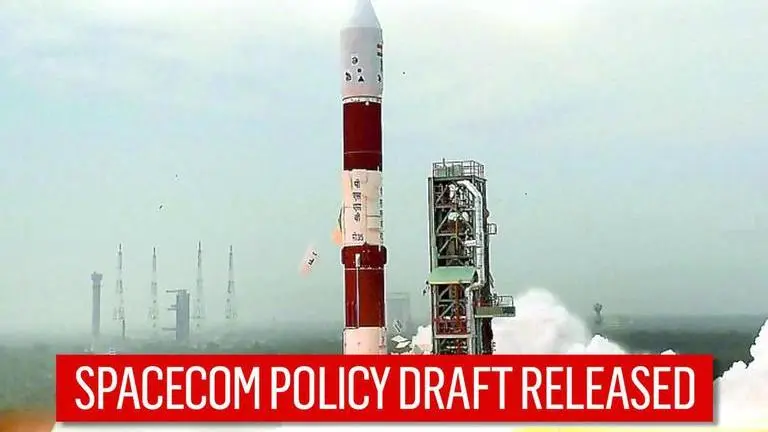Updated 22 October 2020 at 12:58 IST
ISRO releases draft policy to boost private players' participation in space communications
ISRO has released the draft of a new Spacecom Policy to regulate the commercial use of satellites, orbital slots, and ground stations for communication needs
- Science News
- 2 min read

As the Union government gave its nod to bring reforms in the space sector by allowing private players' participation, the Indian Space Research Organisation (ISRO) has released the draft of a new Spacecom Policy 2020. The policy will regulate the commercial use of satellites, orbital slots, and ground stations for communication needs. The policy also details how private players can get authorisation for setting up new communication satellites and ground stations.
The private players in the space communication sector will also enable India to keep pace with the growing demand for satellite-based broadcasting, network connectivity, and global mobile personal communication, the policy document states. This will also establish India as a significant player in the global space communication sector, it added. The new policy is kept open for comments and the last date for submission is November 4. The spacecom policy will come into effect once the Union cabinet clears it.
Only Indian entities will be allowed to seek authorisation
According to the policy, only Indian entities will be allowed to seek authorisation for orbital slots for new satellites, services based on existing satellites and setting up new ground stations. Furthermore, any company sending a communication satellite in space will also be responsible for any damages to other objects in space and the environment, the policy stated. In order to cover this, companies will have to provide a financial guarantee or insurance cover at the time of seeking authorisation from the department of space and later from the Indian National Space Promotion and Authorisation Centre (IN-SPACe).
Advertisement
The policy will also safeguard India’s orbital resources or slots. Getting preferred orbital slots is a long-drawn process that needs a lot of technical coordination and negotiations with other satellite operators of multiple countries to ensure interference-free operation of all satellites. The private players will be able to acquire these orbital slots from the department of space PSUs at a cost.
Advertisement
However, there is an international time-stipulation for launching a satellite into the designated orbit and continued occupancy is essential. Hence, to protect the orbital slot, the private companies will have a timeline for operationalizing satellites. If any company is unable to replace a satellite, then the slot will be allocated to another. So far India has brought in 32 indigenous operational communication satellites since the 1980s.
Published By : Brigitte Fernandes
Published On: 22 October 2020 at 12:57 IST
